The assassination of Kandahar’s progressive mayor, Ghulam Haider Hamidi, this week marked the latest in a wave of high-profile killings in Afghanistan, reviving the debate over whether the Taliban is orchestrating a coordinated offensive ahead of America’s troop drawdown. Taliban leaders were quick to claim credit for Hamidi’s death, along with that of Afghan President Hamid Karzai’s half-brother Ahmed Wali Karzai on July 12. However, top American officials in the war-torn country, along with one strategic insider who worked closely with Hamidi, are hesitant to verify the Taliban’s claims. “Whether Hamidi’s killing was really orchestrated by the Taliban is difficult […]
South Asia Archive
Free Newsletter
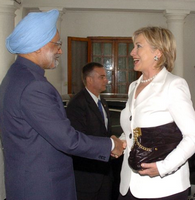
NEW DELHI — U.S. Secretary of State Hillary Clinton was in India yesterday for the second strategic dialogue between the two countries. The meeting’s agenda was dominated by the need to strengthen strategic counterterrorism and defense cooperation, iron out wrinkles over nuclear cooperation and adapt to the tectonic shift in the geopolitics of the Afghanistan-Pakistan region. The bilateral strategic dialogue was put into motion during Indian Foreign Minister S.M. Krishna’s visit to Washington in March. Though there was nothing to rival the high-adrenaline excitement surrounding the 2008 Indo-U.S. nuclear deal or the histrionics that characterized U.S. President Barack Obama’s November […]
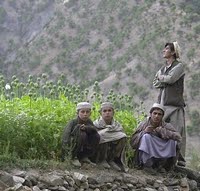
On June 26, at a gathering in Kabul marking World Counter Narcotics Day, the mood was somber. Gone was the positive spin of last year’s event, when Afghanistan’s minister of counternarcotics, Zarar Ahmad Moqbil, proudly announced that poppy cultivation had been reduced by up to 50 percent and that 23 out of 34 provinces were then free from poppy cultivation. Sadly, the significant decrease in opium production last year has since been attributed to a convergence of environmental and climatic variables that devastated the crops late in the season, not to effective counternarcotics measures. According to the United Nations, Afghanistan […]
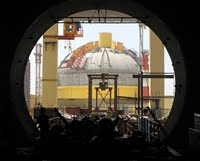
After seven years of debate and impasse, the Nuclear Suppliers Group, a 46-nation group of nuclear technology suppliers, agreed at a meeting last month in the Netherlands to revise the guidelines for trade in enrichment and reprocessing (ENR) technology. The move was immediately criticized in India by the media and opposition parties as a reversal of the NSG’s 2008 waiver allowing the transfer to India of sensitive ENR technology, which can be used for the production of both nuclear energy and nuclear weapons. The NSG’s original guidelines dated from 1978, three years after the group was formed in response to […]
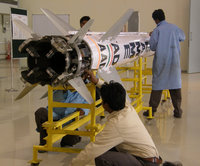
In secretary-level talks between India and Pakistan that concluded in Islamabad on June 25, the two nations decided to set their differences aside and work toward a new future. But even as both sides reassess their ties and mull confidence-building measures, the thorny issue of tactical and strategic missile tests and ballistic missile defense (BMD) continues to cast a long shadow over the bilateral relationship. Recent reports that India is seeking to develop longer-range strategic missiles have raised anxieties in Pakistan. On June 2, the head of Defense Research and Development Organization (DRDO), India’s premier defense-research agency, declared that India […]
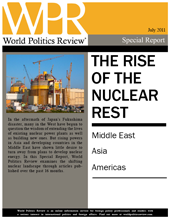
In the aftermath of Japan’s Fukushima disaster, many in the West have begun to question the wisdom of extending the lives of existing nuclear power plants as well as building new ones. But rising powers in Asia and developing countries in the Middle East have shown little desire to turn away from plans to develop nuclear energy. In this Special Report, World Politics Review examines the shifting nuclear landscape through articles published over the past 16 months. Below are links to each article in this special report, which subscribers can read in full. Subscribers can also download a .pdf version […]
